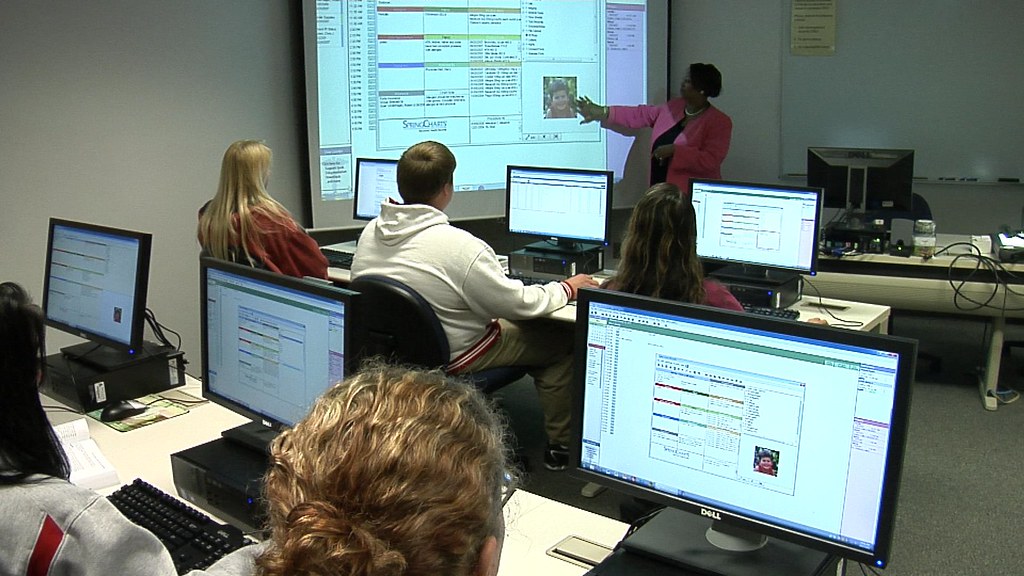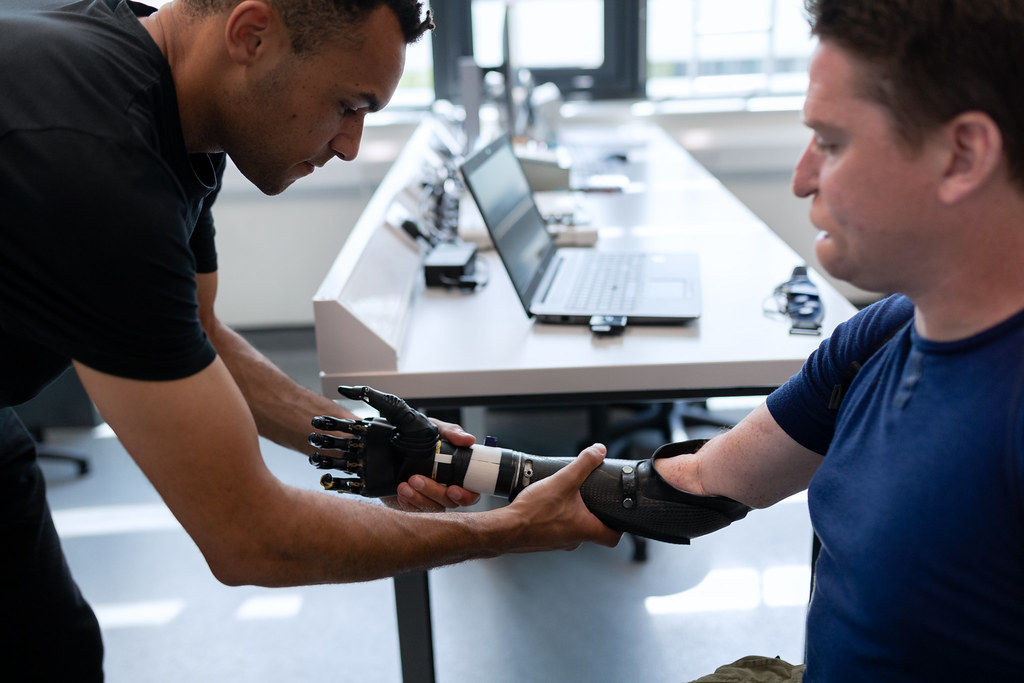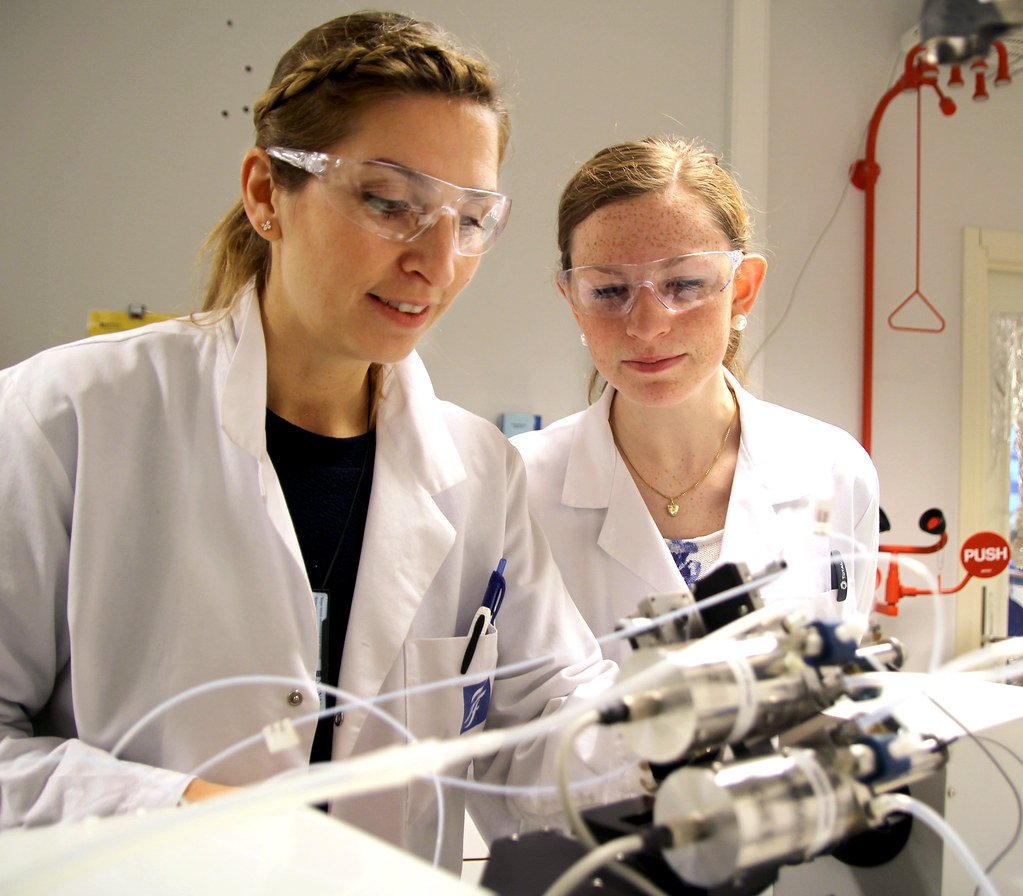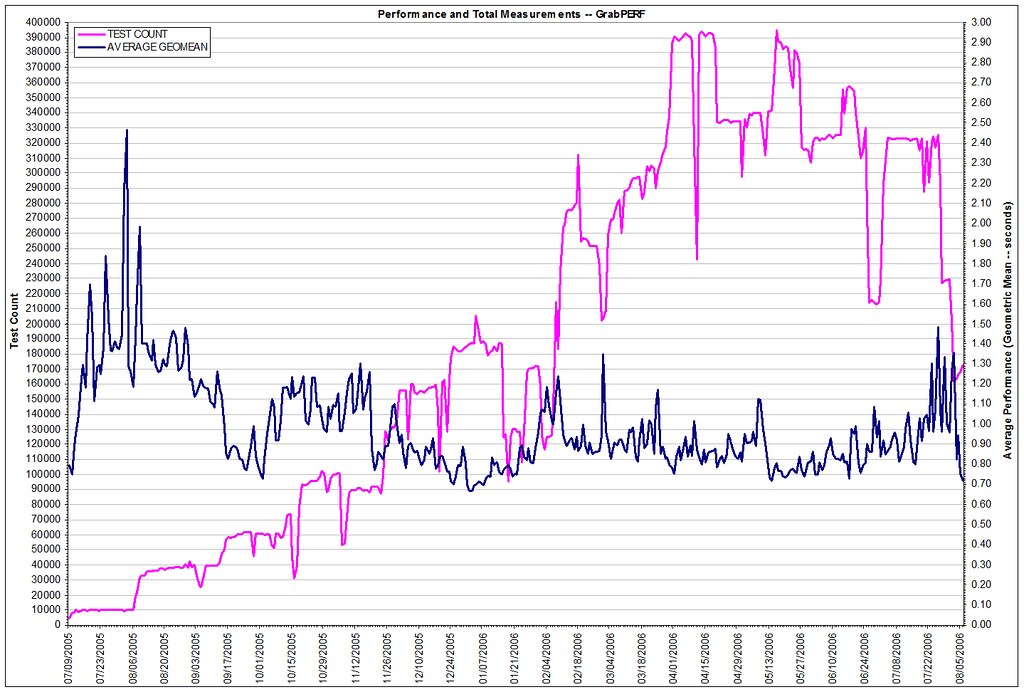Pursuing a bachelor’s degree in a field projected to experience job growth can lead to higher job stability, better income potential, and more advancement prospects. Here are the 30 highest-paying bachelor’s degrees.
30. Accounting

With an early salary of $51,000, accounting has a projected job growth of 4 percent. Earning a bachelor’s degree in accounting involves learning auditing, cost accounting, accounting information systems, and the core concepts of accounting and financial transaction management. Specializations include financial analysis, public accounting, and forensic accounting. Future projections foresee the analytical functions of accountants becoming more important.
29. Business Administration

With an early career salary of $51,489, business administration has a projected job growth of 10 percent. Earning a bachelor’s degree in business administration includes learning core business concepts in the areas of finance, logistics, marketing, and human resources. Courses on leadership and organizational behavior are also recommended. Areas of specialization include entrepreneurship, international business, and nonprofit management.
28. Management Information Systems

With an early career salary of $64,000, management information systems has a projected job growth of 15 percent. Earning a bachelor’s degree in management information systems includes learning the use of computers and information technology to solve organizational problems. Coursework combines learning economics, business, and marketing finance, as well as programming and cybersecurity
27. Nursing

With an early career salary of $65,792, nursing has a projected job growth of 6 percent but may be much higher in certain regional areas. A large aging population means an increased need for healthcare workers. A bachelor’s degree in nursing prepares students for becoming a registered nurse. Students can advance toward a Nurse Practitioner or a Clinical Nurse Specialist.
26. Civil Engineering

With an early career salary of $66,517, civil engineering has a projected job growth of 5 percent. Earning a bachelor’s degree in civil engineering includes courses in surveying, hydraulic engineering, and fluid mechanics. Students learn how to create and repair infrastructure, including roads, bridges, and waterways. Specialty focuses include construction engineering and transportation systems.
25. Information Technology

With an early career salary of $67,110, information technology (IT) has a projected job growth of 10 percent. Earning a bachelor’s degree in information technology involves using computer programs and networks to achieve business goals. Students learn IT management, information security, and applying technology-based solutions to organizational needs. IT careers include database administrators, system administrators, and computer network architects.
24. Mathematics

With an early career salary of $69,435, mathematics has a projected job growth of 15.2 percent. Mathematics offers two degrees. A Bachelor of Arts has a more flexible curriculum and a wider range of electives. A Bachelor of Science focuses more on core mathematical disciplines, such as linear algebra and calculus, and courses on computer science and logic.
23. Industrial Engineering

With an early career salary of $70,229, industrial engineering has a projected job growth of 12 percent. A bachelor’s degree in industrial engineering involves learning how to analyze different production systems. The focus is on improving efficiency and reducing wastefulness. Coursework combines work design and engineering concepts with learning supply chain management and data science.
22. Biomedical Engineering

With an early career salary of $70,486, biomedical engineering has a projected job growth of 5%. A bachelor’s degree in biomedical engineering involves learning how to apply engineering concepts to the design of devices aimed at improving the quality of human life. Coursework mixes classroom and lab-based courses. Specialized studies include biomechanics and biomedical imaging.
21. Marine Engineering

With an early career salary of $70,837, marine engineering has a projected job growth of 4 percent. A bachelor’s degree in Marine engineering involves learning the core concepts behind the operation of different types of ships, including cargo ships, aircraft carriers, and submarines. Coursework typically includes Marine design, propulsion, applied mechanics, and fluid sciences.
20. Mechanical Engineering

With an early career salary of $72,441, mechanical engineering has a projected job growth of 10 percent. Earning a bachelor’s degree in mechanical engineering involves learning how to design and build a huge range of mechanical devices. Courses include material science, thermodynamics, and fluid mechanics. Specialization fields include auto research, robotics, and machine learning.
19. Computer Science

With an early career salary of $74,000, computer science has a projected job growth of a whopping 32 percent. Earning a bachelor’s degree in computer science includes learning programming languages, software development, computer systems, and networks. Most universities also offer advanced courses in data science, artificial intelligence, and machine learning.
18. Operations Research

With an early career salary of $74,114, operations research has a projected job growth of 25 percent. A bachelor’s degree in operations research involves learning skills needed to solve problems, make decisions, and properly allocate and manage limited resources. Coursework includes quantitative analysis, with a heavy focus on mathematics. Recommended and foundational courses include statistics, probability, mathematical modeling, and calculus.
17. Chemical Engineering

With an early career salary of $75,427, chemical engineering has a projected job growth of 8 percent. Earning a bachelor’s degree in chemical engineering involves learning how goods and materials are produced. Coursework includes physics, math, biology, and chemistry and how they’re used to solve problems in the manufacturing process. Advanced studies include thermodynamics, materials and polymers, and energy sustainability.
16. Interaction Design

With an early career salary of $75,526, interaction design has a projected job growth of 13 percent. A bachelor’s degree in interaction design involves extensive coursework in programming, user experience design (UX), and human-computer interaction. Students learn to create the most appealing and intuitive designs for electronic interfaces, such as those on websites, apps, and smart devices.
15. Finance

With an early career salary of $76,000, finance has a projected job growth of 20 percent. A bachelor’s degree in finance includes learning statistics, business law, taxation, and accounting. Similarly to a degree in economics, a finance degree may offer specializations such as corporate finance, financial planning, and asset management.
14. Electrical Engineering

With an early career salary of $76,426, electrical engineering has a projected job growth of 4 percent. A bachelor’s degree in electrical engineering involves learning how to design and test electrical equipment and products, including systems used for communications, navigation, and radar. Specialization areas include microelectronics, power systems, controls, computer engineering, electrophysics, and communications and signals processing.
13. Economics

With an early career salary of $77,589, economics is one of the higher-paying fields and has a projected job growth of 6 percent. Earning a bachelor’s degree in economics involves learning core concepts such as economic theory, microeconomics, and macroeconomics. Specializations include areas such as financial economics, agricultural economics, and mathematical economics.
12. Systems Engineering

With an early career salary of $78,239, systems engineering has a projected job growth of 5 percent. Earning a bachelor’s degree in systems engineering involves teaching students to build and manage organizational systems through the use of mathematical and engineering techniques. Coursework involves studying and learning probability, modeling, and decision analysis.
11. Electronics Engineering

With an early career salary of $78,910, electronics engineering has a projected job growth of 7 percent. A bachelor’s degree in electronics engineering involves courses in electronics, electrical circuits, transistor design, and advanced microcontroller design. Specialized studies include the design, development, and inspection of electronic equipment, such as flight systems, satellites, radar systems, and communications systems.
10. Aviation Management

With an early career salary of $79,000, aviation management has a projected job growth of 7 percent. Earning a bachelor’s degree in aviation management involves courses in aviation law, airport safety, crisis communications, and disaster management. Some degrees also offer flight training for those who plan to become certified pilots. Airline operations and airport management.
9. Statistics

With an early career salary of $79,100, statistics has a projected job growth of a whopping 32 percent, with fast employment growth expected. Earning a bachelor’s degree in statistics includes coursework in data analysis and probability. Students focus on core concepts of statistics from a science standpoint, exploring how statistics are applied to a wide range of disciplines.
8. Computer Engineering

With an early career salary of $80,587, computer engineering has a projected job growth of 5 percent. A bachelor’s degree in computer engineering focuses on the design and development of hardware, software, and networks. Students take lab-based courses that are geared at building and testing embedded systems that integrate hardware and software.
7. Cognitive Science

With an early career salary of $82,000, cognitive science offers some of the most versatile career options. The field blends science, technology, and healthcare. Cognitive scientists work with evidence-based theories on the workings of the human mind and how it affects decisions, behaviors, and beliefs. Graduates can work in various careers, such as data scientists, forensic psychologists, or learning developers.
6. Aerospace Engineering

With an early career salary of $82,053, aerospace engineering has a projected job growth of 6 percent. Earning a bachelor’s degree in aerospace engineering involves learning how to design and maintain aircraft systems, spacecraft, and satellites. Basic courses include physics and mathematics, while advanced courses include structural systems, aerodynamics, and propulsion. Specialization includes aeronautical engineering (aircraft) and astronautical engineering (spacecraft).
5. Actuarial Science

With an early career salary of $85,581, actuarial science has a projected job growth of 24 percent. A bachelor’s degree in actuarial science involves courses in fields such as math, statistics, economics, and business. Students gain the analytical skills necessary for assessing the costs of potential future events, such as disability or death. Actuaries typically work for insurance companies.
4. Physics

With an early career salary of $86,168, physics has a projected job growth of 5 percent. Earning a bachelor’s degree in physics includes coursework in the areas of thermodynamics, classical mechanics, and quantum mechanics. After completing their studies, many physics graduates engage in applied research. One such field is developing technology for use in energy storage, among other applications.
3. Software Engineering, Software Development

With an early career salary of $88,150, software engineering and software development are two in-demand fields facing worker shortages that have a projected job growth of 26 percent. Earning a bachelor’s degree in software engineering involves learning programming, application development, and database management. At most universities, it will also include core mathematical concepts, including discrete mathematics and calculus.
Read More: The 20 Highest Paying Associate’s Degrees in 2024
2. Petroleum Engineering

With an early career salary of $96,742, petroleum engineering has a projected job growth of 2 percent. The continued use of oil and gas will maintain a need for engineers. A bachelor’s degree in petroleum engineering involves learning how to develop efficient equipment and methods for extracting oil and gas, implementing drilling strategies, and supervising operations at drill sites.
Read More: The 10 Most Valuable Undergrad Degrees
1. Pharmacy

With an early career salary of $112,842, pharmacy is the only field on our list expected to experience a negative job growth of 2 percent. A bachelor’s degree in pharmacy includes basic coursework in sciences, such as biology, chemistry, and mathematics. Advanced coursework includes pharmacology, toxicology, and drug discovery and development.
Read More: High-Paying Art Degree Careers








